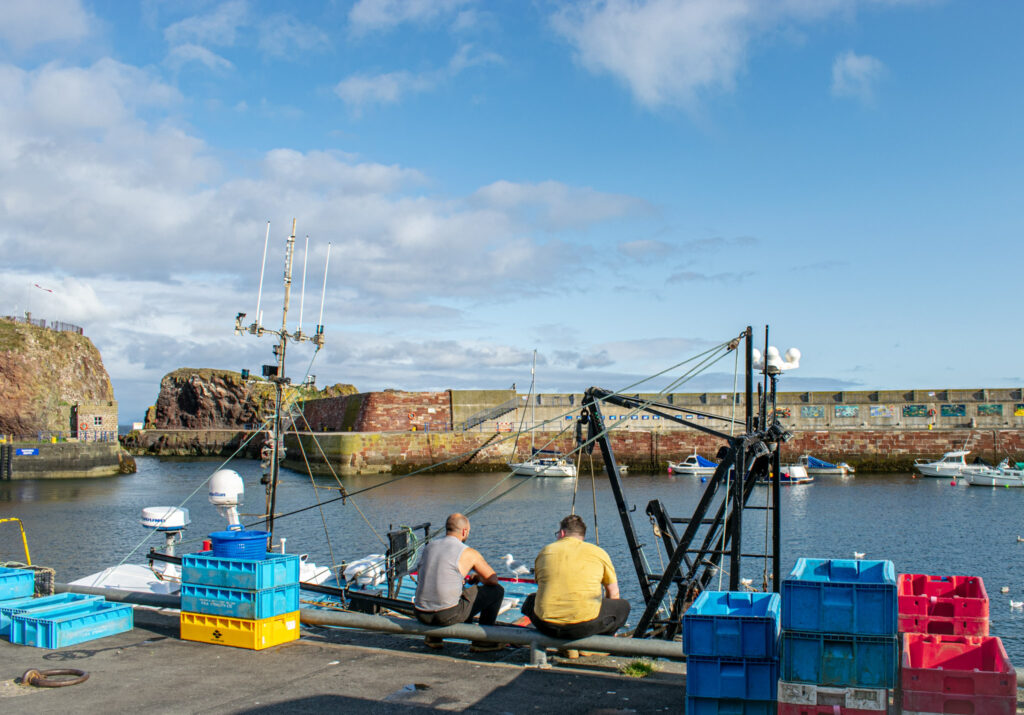Industry body urges Scottish Government to ‘rebalance the green agenda’

SCOTLAND’S foremost fishermen’s body has challenged John Swinney, expected to become Scotland’s new First Minister, to “right the wrongs” of the Bute House Agreement and commit to putting support for fishing towards the top of the agenda.
Following the launch of its inaugural Industry Trends and Attitudes Report the Scottish Fishermen’s Federation is calling for a ‘rebalance in the green agenda’ after the collapse of the Bute House Agreement and the end of the power-sharing agreement between the SNP and the Scottish Greens.
The timely report sheds light on the positive progress towards long-term sustainability being made by the Scottish fishing fleet – a vital cog for food security.
As part of the publication, a survey of 1,000 Scots revealed the sector receives widespread public backing, with nine in 10 people in the country believing the Scottish Government should do more to support the industry – particularly those communities which are intrinsically connected to the sea.
SFF Chief Executive Elspeth Macdonald has called on the government to shift its perspective on the fishing industry amid the political upheaval. While acknowledging that there is always more to do, fishing already represents a climate-smart sector, boasting a very low carbon footprint and producing healthy, sustainable seafood from our naturally renewable resources.
SFF wants policymakers to recognise the industry as part of the solution to climate challenges, rather than perceiving it as a hindrance.
She said: “The Bute House Agreement was disastrous for Scotland’s fishing sector. It failed to recognise any positive benefits of fishing, seeing nothing but ‘problems’ that needed to be solved. However, we saw with last summer’s scrapping of the Bute House Agreement’s proposals for Highly Protected Marine Areas that the Scottish Government did listen, and withdrew these ill-conceived, ideologically driven and unevidenced plans.
“Thankfully the Government has backtracked on their damaging agreement with the Scottish Greens, presenting a golden opportunity for the new leadership to bring forward plans that will secure the health of our sector and our seas.
“This report aims to refocus the spotlight onto facts, not rhetoric. It sets out how the modern industry has adapted, the strong focus on science and the importance of proper dialogue and cooperation. It also highlights the complexity of our marine systems, and why oversimplifying issues does no favours – and indeed can be misleading – when helping to really understand what are complex and often poorly understood processes.
“Ultimately, what we have found is Scotland values its fishing industry and the public has urged its politicians to support us, and put the sector at the forefront of decision making.
“We would urge the incoming First Minister to adopt this mindset, and have a balanced, rational approach to the future of fishing. We can’t afford to lose or damage an industry that provides jobs, supports communities and puts healthy, low-carbon protein on our plates.”
The report delves into key social and political issues such as the industry sustainability efforts and food security, as well as the environmental impact of the sector, with nearly nine in 10 Scots wanting the nation’s fishing fleet to be protected in the face of the spatial squeeze from competing interests such as offshore wind.
It culminates in a call to action for political collaboration to not only protect the sector, but to work with government and other relevant stakeholders to help ensure Scotland’s fishing is biologically and socio-economically sustainable for the long term.
The Industry Trends and Attitudes Report follows the SFF’s Pride in the Seas, a campaign that depicts the challenge, pride and responsibility felt by those working in Scotland’s fishing industry.
The photo-led exhibition debuted within the Scottish Parliament, which saw more than 50 politicians across all parties except the Scottish Greens sign a pledge to help protect Scotland’s fishing industry.
Elspeth added: “Fishing is at a critical juncture, from the spatial squeeze of competing marine interests to ongoing debates surrounding sustainability and conservation. There are many elements which can impact on our great industry, of which Scottish people are rightly proud.
“It is heartening to see that there is broad support not just from the public but also in Holyrood for our fishing fleets, with so many signatures from across different political allegiances supporting our goal to protect what we see is a jewel in Scotland’s crown.
“Now is the time for action, and what we now ask for is calm rational debate on how we can move forward from what have been difficult times.
“We invite everyone to explore the modern fishing industry beyond outdated stereotypes, and hope this report will provide a comprehensive review of our sector.”
The SFF was established in 1973 to represent a sustainable, prosperous fishing industry in Scotland. It was borne in response to the first oil shock which saw the proliferation of engineering work to extract oil and gas from the historic fishing grounds of the North Sea.
Working for the interests of 450 fishing vessels in Scotland’s fleet, the SFF is made up of eight constituent Associations which represent a wide cross-section of the sector from small creel boats working inshore to large pelagic and white fish trawlers.
The full report will be available on the SFF website. For all enquiries, please contact: press@sff.co.uk